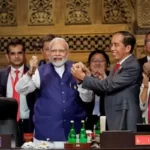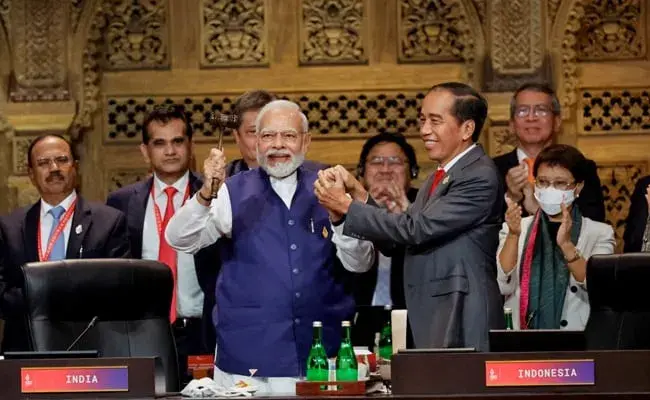-By ArdorComm News Network
December 1, 2022
Prime Minister Narendra Modi today called for a “shift in fundamental mindset to benefit humanity as a whole” as India assumes the G20 presidency.
PM Modi stated that India’s year-long G20 presidency will be “inclusive, ambitious, decisive, and action-oriented,” adding that it will encourage an honest conversation on minimising the risks posed by weapons of mass destruction and boosting global security.
India began its G20 presidency today by emphasising counter-terrorism and “unity” in addressing global concerns such as the economic slowdown and climate change.
The government also tries to develop agreement on debt sustainability and catastrophe and climate-resilient infrastructure. In addition, India’s G20 plans include a special emphasis on startups and bridging the digital divide.
Over the following year, India will host up to 200 meetings across the country, with the first taking place later this week in Udaipur. In September 2023, the G20 Summit will be held in New Delhi.
External Affairs Minister S Jaishankar stated that the G20 platform strives to find common ground among prominent countries on key issues. “Our endeavor as the G20 chair is to make that consensus more relevant through wider consultation,” he said.
For a week beginning today, 100 monuments across the country, including UNESCO world heritage sites, will be illuminated with the G20 logo.
Last month, Prime Minister Narendra Modi presented the logo and theme for India’s G20 presidency. The logo features a lotus flower and a globe, and the theme for India’s G20 presidency is “One Earth, One Family, One Future,” emphasising the country’s dedication to ‘Vasudhaiva Kutumbakam’ (world is one family).
At the conclusion of the previous G20 summit in Bali on November 15 and 16, India was handed over the presidency of the influential bloc.
The Group of 20 (G20) is an intergovernmental forum comprised of the world’s biggest industrialised and developing economies. Argentina, Australia, Brazil, Canada, China, France, Germany, India, Indonesia, Italy, Japan, the Republic of Korea, Mexico, Russia, Saudi Arabia, South Africa, Turkey, the United Kingdom, the United States, and the European Union comprise the group.
The member countries account for around 85% of global GDP, more than 75% of global trade, and almost two-thirds of global population.


